Vocabulary development Building Vocabulary Worksheets for 4-Year-Olds
5 filtered results
-
From - To
Enhance your child's language skills with our engaging "Vocabulary Development Building Vocabulary Worksheets for 4-Year-Olds." Designed specifically for young learners, these worksheets help expand vocabulary through fun activities that promote word recognition and comprehension. Ideal for both parents and teachers, our resources provide enjoyable ways to introduce new words, fostering a love for reading and language. From matching words to images to filling in blanks, your child will explore vocabulary in an interactive manner. Encourage early literacy development and set the foundation for success in communication with our carefully curated worksheets that make learning exciting and effective!
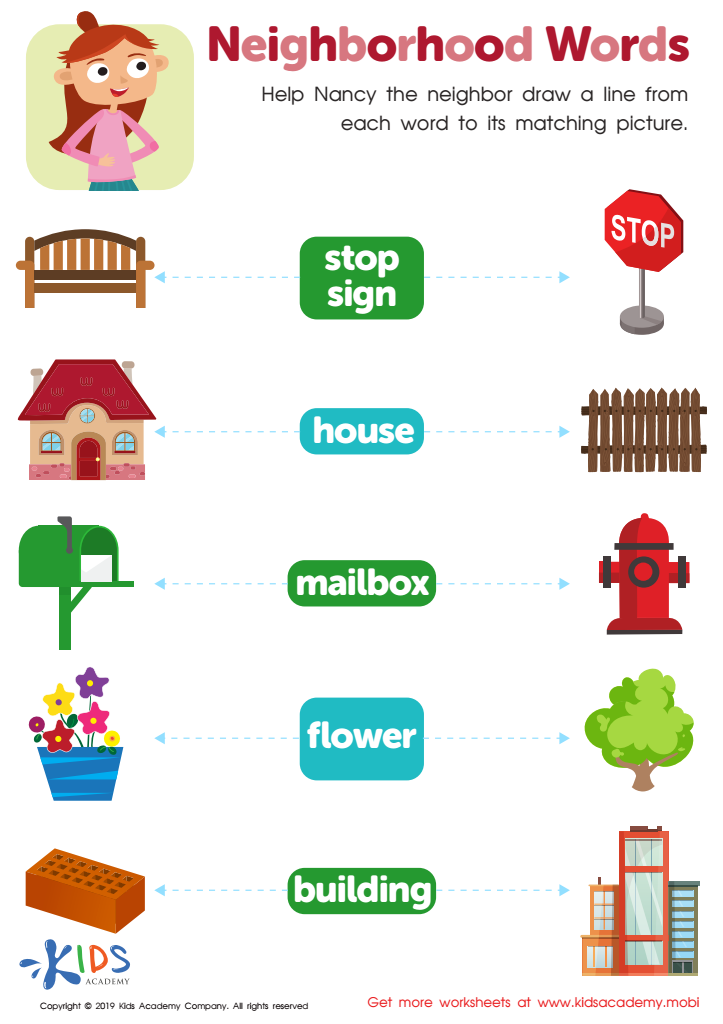

Neighborhood Words Worksheet
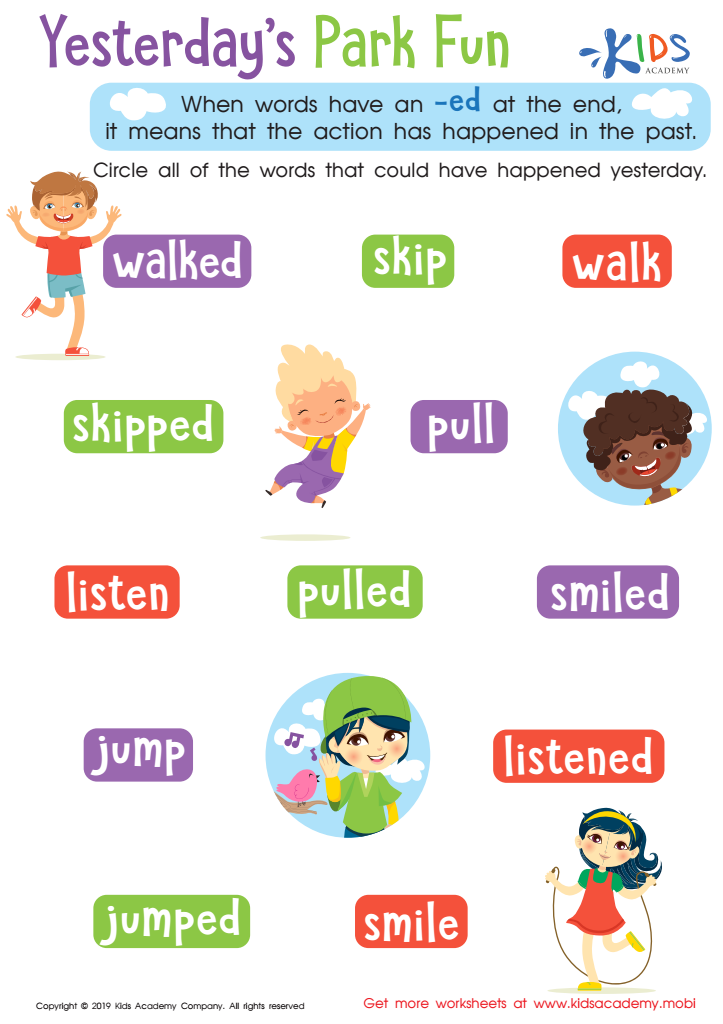

Yesterday's Park Fun Worksheet
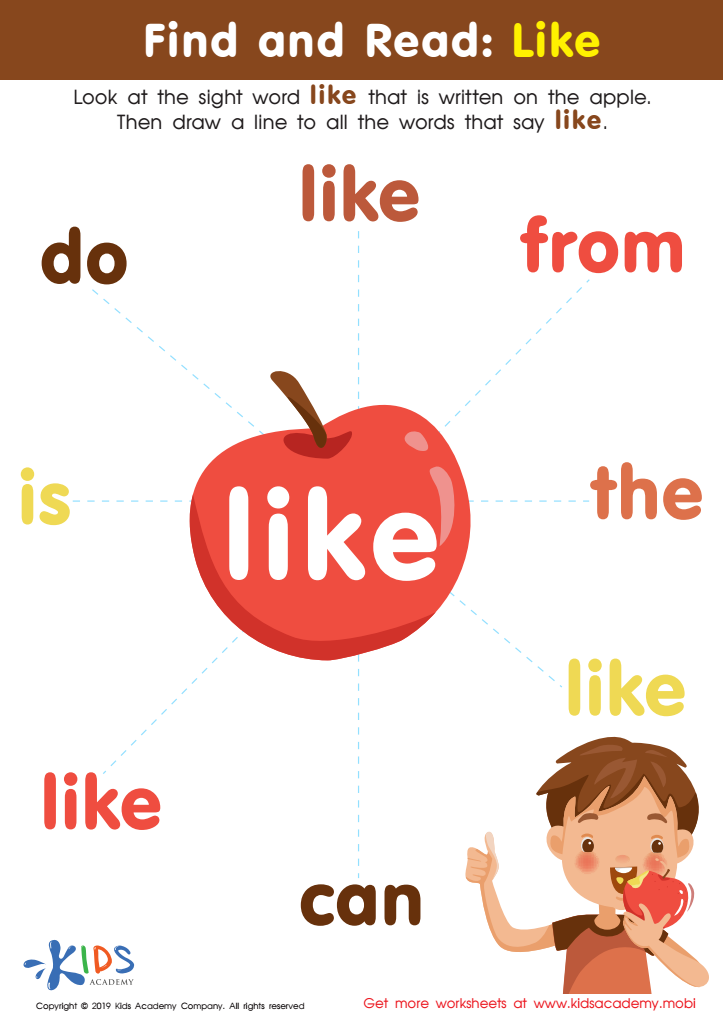

Find and Read: Like Worksheet
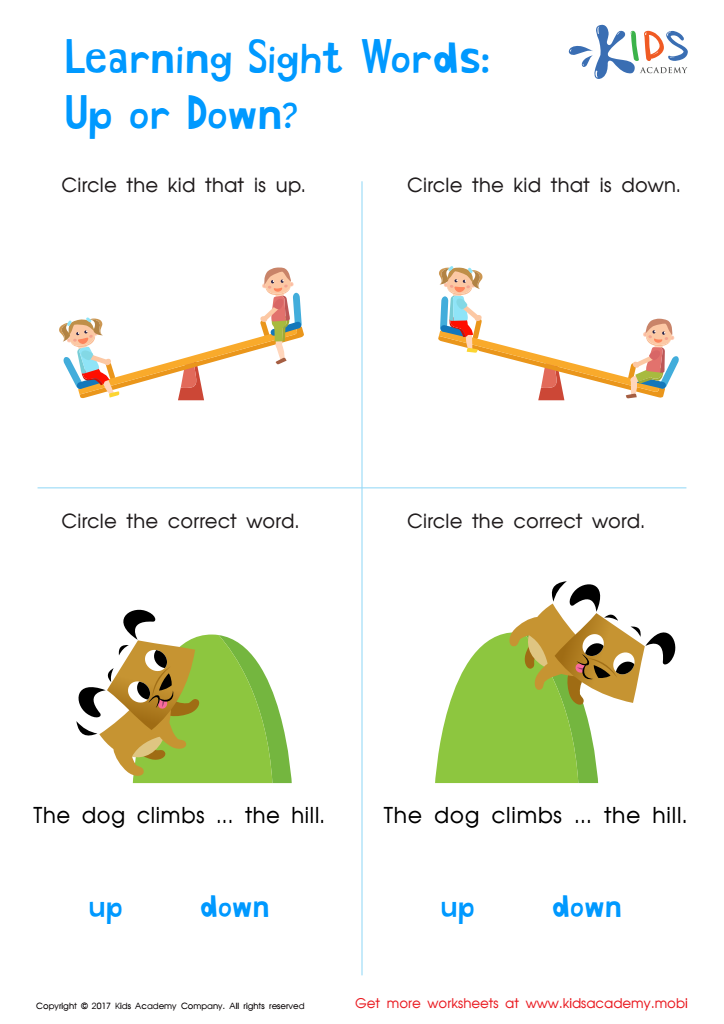

Up or Down Printable Sight Words Worksheet
Vocabulary development in 4-year-olds is crucial for several reasons, attracting the attention of both parents and educators. First, a robust vocabulary forms the foundation for effective communication. Children who possess a wide range of words are better equipped to express their thoughts, needs, and emotions, which fosters social interactions and builds confidence.
Second, vocabulary is closely linked to literacy. Research indicates that children with strong vocabularies are more likely to excel in reading and writing later on. This early exposure sets the stage for academic success, as language skills are pivotal in understanding concepts across subjects.
Additionally, vocabulary development enhances cognitive skills. Engaging with new words encourages critical thinking and comprehension, allowing children to make connections between ideas and learn about the world around them.
By prioritizing vocabulary building through engaging activities such as storytelling, singing, and interactive play, parents and teachers can provide enriching experiences that promote learning. Investing in vocabulary development at this age not only lays a solid foundation for literacy and academic performance but also contributes to overall emotional and social growth, preparing children for a successful future.

 Assign to My Students
Assign to My Students










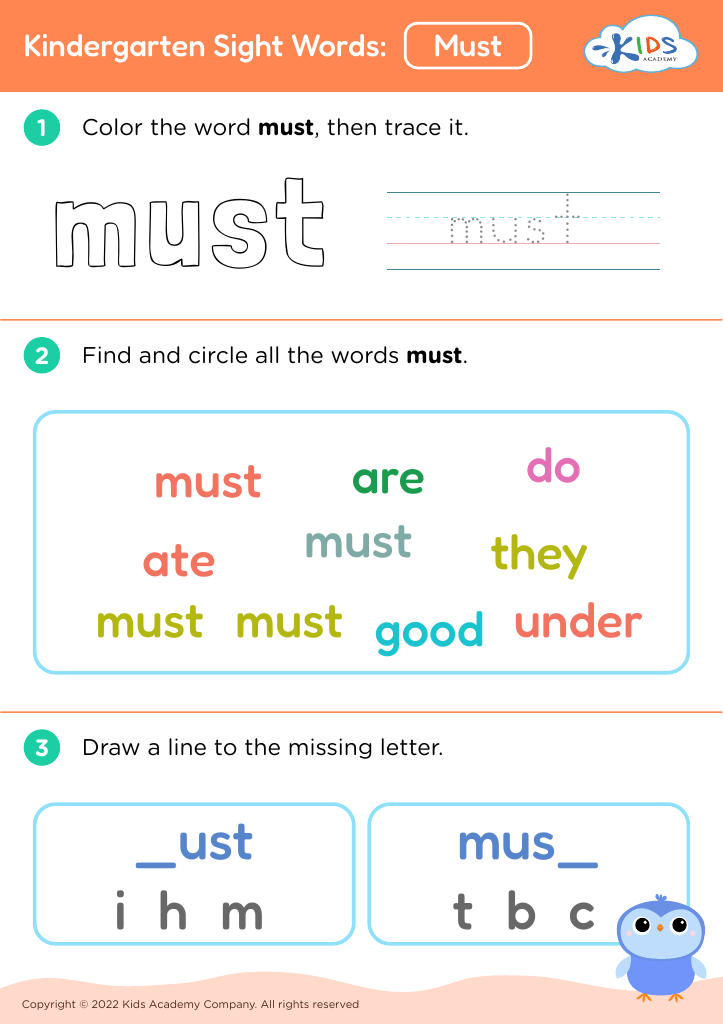



.jpg)












